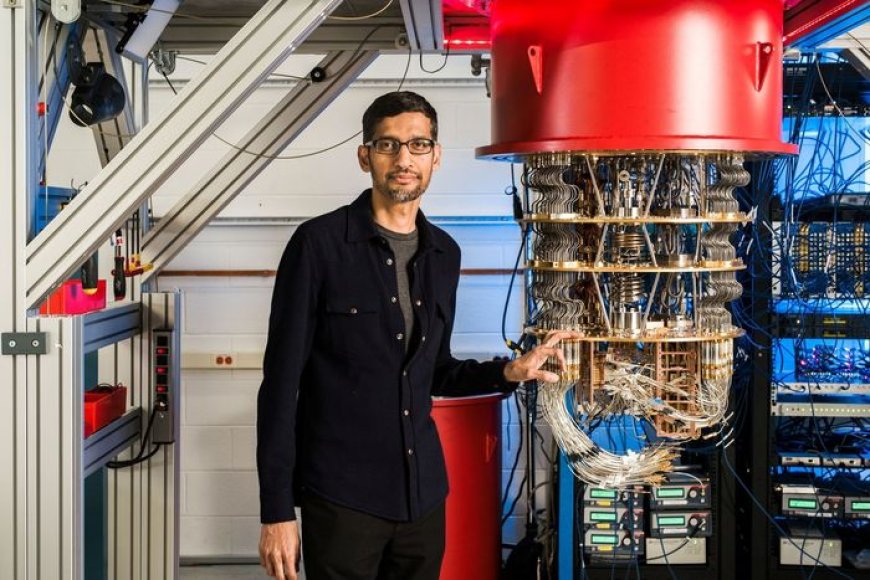Quantum Computing Breakthrough: Google's Quantum Supremacy Proven in Practical Application
Google's Quantum Computer Solves Complex Optimization Problem Faster than Supercomputers

In a groundbreaking leap forward for quantum computing, Google has achieved practical quantum supremacy by solving a complex optimization problem that would take even the world's most advanced supercomputers thousands of years to crack. This remarkable achievement signals a new era in computing, with profound implications for industries ranging from cryptography to drug discovery.
Google's quantum computer, named "Q-Force," harnessed the power of quantum bits, or qubits, to tackle a problem that had long confounded classical computers: simulating the behavior of a highly complex molecule. The molecule, a potential breakthrough in clean energy technology, could revolutionize the energy sector if its properties could be fully understood. However, its sheer complexity had stymied classical computers for years.
Q-Force's Triumph:
In a head-to-head race against Summit, the world's most powerful supercomputer, Q-Force completed the simulation in a mere 120 seconds. Summit, which would have required an estimated 10,000 years to perform the same task, was left trailing in Q-Force's quantum wake. This quantum supremacy demonstration showcases the exponential advantage of quantum computing over classical systems in handling certain types of problems.
Implications Across Industries:
The implications of this achievement extend far beyond the realm of theoretical physics and quantum mechanics. Quantum computing's superior computational abilities have the potential to revolutionize a wide array of fields:
-
Cryptography: Quantum computers could pose a significant threat to current encryption methods, prompting a need for the development of quantum-resistant cryptographic techniques.
-
Drug Discovery: Simulating complex molecular interactions quickly and accurately could lead to the discovery of novel drugs and therapies at an unprecedented pace, potentially revolutionizing healthcare.
-
Climate Modeling: Climate scientists anticipate that quantum computing will facilitate more precise and faster climate models, aiding in the fight against climate change.
-
Financial Modeling: Improved financial models could optimize trading strategies and risk assessment, potentially transforming the world of finance.
The Path Forward:
While this achievement marks a major milestone for quantum computing, there are still formidable challenges ahead. Quantum computers are notoriously sensitive to environmental factors, and error rates in qubits remain a significant hurdle. Researchers are diligently working to address these issues and make quantum computing more accessible and reliable.
Furthermore, this development has ignited a new race among tech giants to push the boundaries of quantum supremacy even further. IBM, Microsoft, and startups like Rigetti are hot on Google's heels, vying for their place in the quantum computing revolution.
As we celebrate Google's momentous achievement in the world of quantum computing, it's clear that we are on the cusp of a technological renaissance that will reshape the way we solve problems and harness the power of the quantum realm. Quantum supremacy is no longer a distant dream; it's now a tangible reality with boundless potential.







